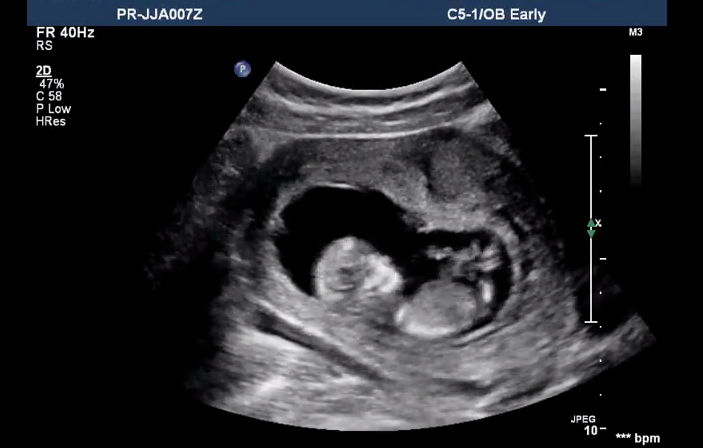Ohio state lawmakers reintroduced a controversial bill Tuesday to prohibit abortions once an unborn baby’s heartbeat is detectable.
Fox 45 Now reports the bill is sponsored by Ohio state Reps. Ron Hood and Christina Hagan.
“We have the right and obligation in my opinion as elected leaders of the state to advance protection of children in the womb,” Hagan said, according to The Review. “I believe that children with beating hearts deserve protection in the state of Ohio, and we should work toward that effort regardless of what the political climate ever looks like.”
Last year, the state legislature narrowly passed a heartbeat bill, but Gov. John Kasich vetoed it because of concerns about its constitutionality. Several pro-life legislators also voted against the bill last year, arguing that abortion activists would challenge it and the state would be forced to pay their attorneys’ fees when they won in court.
The bill, if upheld by the courts, would outlaw almost all abortions. An unborn baby’s heartbeat usually is detectable by six weeks of pregnancy, sometimes before the woman even knows she is pregnant. However, in October, researchers at the University of Oxford announced findings that the heart may actually begin beating earlier – as soon as 16 days after conception.
The legislation is the fourth heartbeat bill to be considered in Ohio in the past several years, according to the local news. Ohio House Speaker Cliff Rosenberger is a co-sponsor of the new bill, and he said he thinks it will come to the floor for a vote.
Keep up with the latest pro-life news and information on Twitter. Follow @LifeNewsHQ
Last year, state Sens. Bill Seitz and Bill Coley were among the three Republicans who voted against the bill.
“The sad reality of this bill passing will be that we spend millions of taxpayer dollars on attorney fees for a bill that has zero chance of becoming law,” Coley said. “My biggest fear is that some of the great work that we have done in protecting life here in Ohio will be jeopardized.”
Heartbeat legislation is controversial even among pro-lifers, not because they oppose banning abortions but because they believe the legislation would be overturned and the state would be forced to pay abortion activists’ legal costs. Such groups are working to change the courts so Roe can be overturned and legislation like the heartbeat bill and others can be approved to provide legal protection for unborn children.
A North Dakota bill to protect unborn babies from abortion once their heartbeats are detectable was struck down in the courts in 2014.
The Eighth Circuit Court of Appeals said the following about their ruling on the six-week ban: “Because there is no genuine dispute that (North Dakota’s law) generally prohibits abortions before viability — as the Supreme Court has defined that concept — and because we are bound by Supreme Court precedent holding that states may not prohibit pre-viability abortions, we must affirm the district court’s grant of summary judgment to the plaintiffs.”
In 2016, the U.S. Supreme Court decided not to hear an appeal of the case, so the Eight Circuit Court ruling stands.
The high court still has a pro-abortion majority that supports Roe v. Wade, which allows virtually unlimited abortions throughout pregnancy and essentially prevents states from protecting most unborn children.
President Donald Trump promised to appoint pro-life justices to the Supreme Court, but several pro-abortion justices would have to retire before there is a chance of pro-life justices being appointed.








